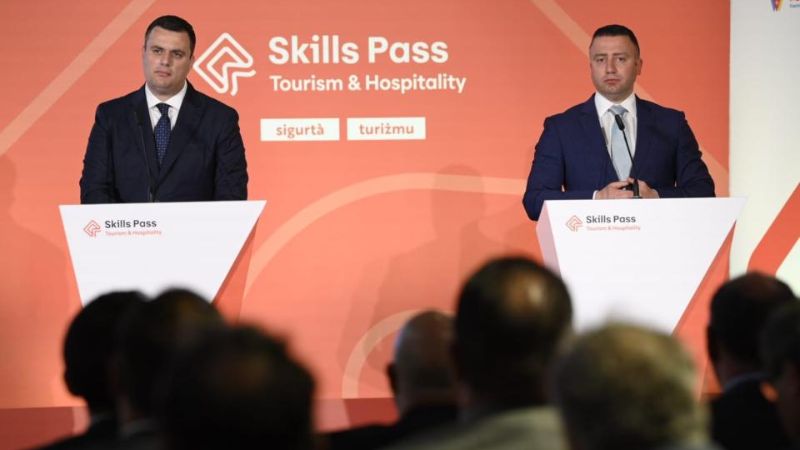Tourism industry insiders are describing the government’s latest initiative to introduce a new ‘skills pass’ requirement for non-EU citizens wanting to work in Malta’s hospitality sector as a gimmick in the lead-up to the MEP elections.
Faced with intense criticism for transforming Malta’s economy into an overpopulated and overdeveloped island dependent on cheap foreign labour, the government announced the introduction of a new ‘skills pass’ requirement for TCNs (third-country nationals) in the hospitality sector.
According to the new rules, which were to be introduced last January but pushed to June after objections from the industry, all those non-EU workers wanting to work in Malta’s hotels, restaurants and other tourism establishments now need a new certificate issued by the Institute of Tourism Studies (ITS) before applying for a Maltese job permit.
In addition, as of January 2025, all TCNs already working in the sector need the same certificate when they renew their yearly work permit.
All TCNs have to pay €475 each to follow an online course by the Institute of Tourism Studies (ITS) delivered by a chatbot.
Industry sources describe the new fee as “just a new entry barrier”. The new fee is in addition to the hundreds of euro the government charges TCNs to issue their work permit. Often, the same individuals have to pay additional thousands charged illegally by agents in commissions.
With the potential to earn millions from this new obligatory certificate, the ITS will not invest much in giving prospective hospitality workers proper training.
The online course, which can be followed from the TCN’s country of origin, is just an AI chatbot conducted by two robots: Ryan and Clara.

Ryan and Clara – the ITS AI-generated lecturers.
No details are available yet on the course’s modules or duration, except that it will deal with skills in basic English language, customer care, and vague information on Malta’s tourism products.
No human interaction will be made with the course takers who pay €475. An online test will complete the process.
It is only through this certificate that the prospective worker can then start the long process of applying for a work permit with Identity Malta, now Identita’, and wait some six more months for the process to conclude.
Tourism industry sources told The Shift that while the intention behind the new requirement makes sense, its implementation is ill-conceived and totally amateurish, according to a member of the Malta Hotels and Restaurants Association who spoke to The Shift.
Others also said the €475 fee is prohibitive to many TCNs who already struggle to pay all the fees, both legal and illegal, to make it to Malta.
“This is just a new barrier aimed at driving the people we need away from Malta. The Cypriot and Portuguese hospitality industries are the biggest beneficiaries,” an experienced hotelier said, adding that if the government were serious, it would have taken action against “the cowboys” allowed to abuse foreign workers.
According to the latest statistics, in 2022, the government issued 38,000 permits for TCN workers. The majority were for the hospitality industry.













It’s clearly a scam to suck more money out of already poorly paid people. The only complaint about TCNs in the hospitality sector is that they don’t speak Maltese and this course will not remedy that.
As this is online and automated, what assurances do future employers have that this will not give rise to professional ‘exam takers’ who will, for an additional fee, undertake the ‘skills pass’ on the candidate’s behalf, thus making not one iota of difference to the quality of candidates who end up in Malta?
The only assurance is that this is exactly what is going to happen along with “customer care” phone calls from ministries “helping people” to jump the queue or the assessment itself, fake passes. Then when fines are introduced, its going to be a repetition of the Transport Malta saga.
This is really ridiculous! People who cook in the kitchen can not pass the exams! Malta will have lots of restaurants and hotel closing down if they are doing this!